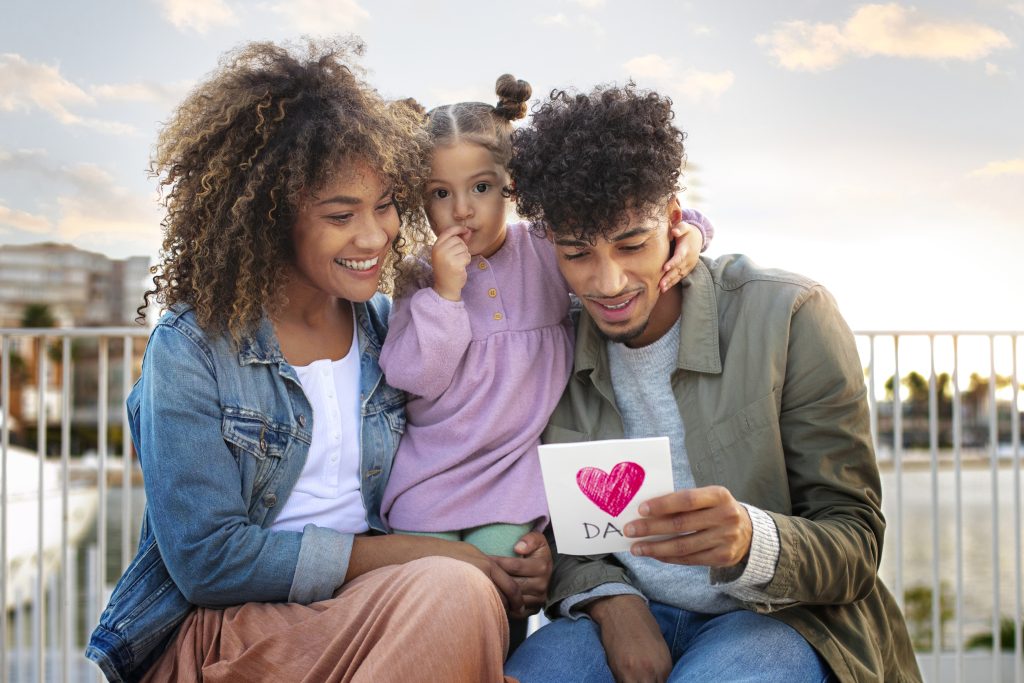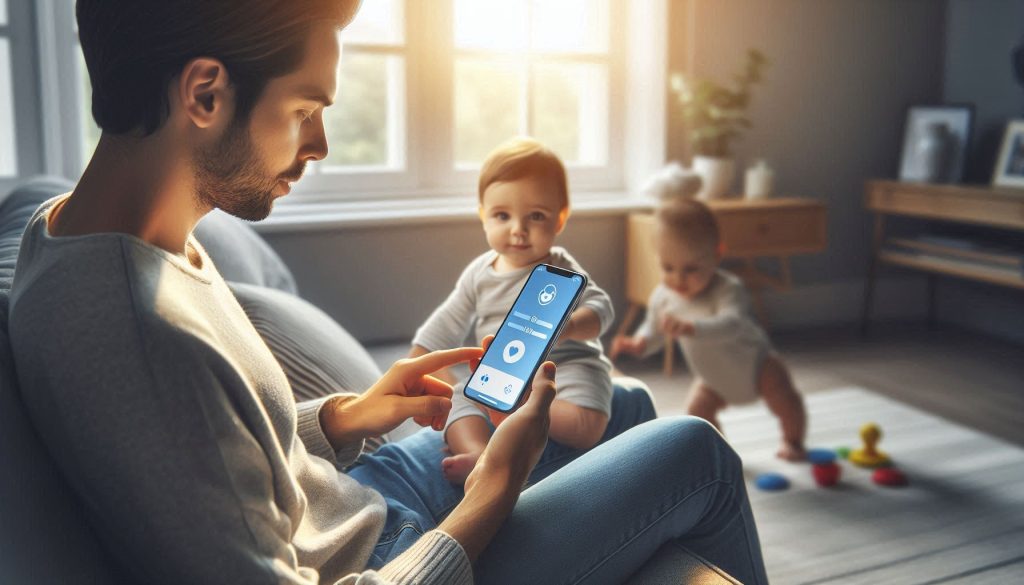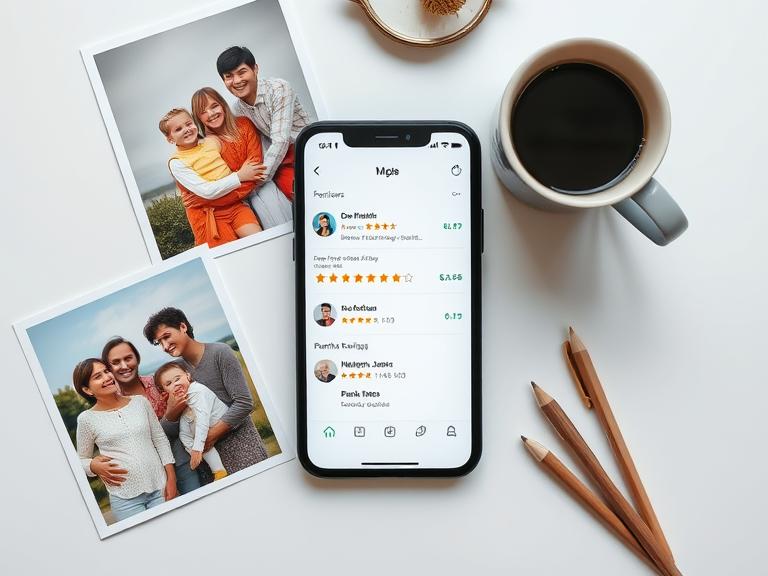Table of Contents
Parenting in the USA has always evolved — from baby monitors to smartphones — but 2025 marks a turning point.
We now live in a world where digital devices are as much a part of family life as dinner tables and bedtime stories.
Kids are learning coding before cursive, families are juggling work-from-home setups, and parents are struggling to find balance between screen-based education and screen-free bonding.
In response, a new generation of digital parenting tools has emerged — smarter, safer, and emotionally aware. These apps are no longer about control; they’re about collaboration, guidance, and wellbeing.
This blog explores the top digital parenting trends shaping the U.S. in 2025, backed by behavioral data, AI innovations, and privacy-conscious technology — all designed to help parents raise emotionally resilient, digitally balanced kids.

In 2025, apps aren’t just tracking what kids do — they’re understanding how they feel.
The latest wave of parenting apps in the USA integrates emotion recognition technology and behavioral analytics, helping families identify stress, fatigue, or overstimulation.
For example, if a child’s screen use spikes late at night, instead of issuing a hard stop, these apps gently suggest relaxation exercises or “wind down” challenges.
💬 Why It Works:
Children respond better to collaborative digital wellbeing than control-based restrictions.
Apps like TinyPal lead this movement by helping families manage digital life with compassion instead of confrontation — empowering both parents and children to recognize emotions behind screen behaviors.
Artificial Intelligence is transforming how parenting apps serve families.
In the U.S., where every household has unique dynamics — from dual-working parents to multigenerational homes — AI now customizes experiences based on:
- Age and emotional maturity of kids
- School hours, sleep cycles, and daily patterns
- Preferred activities (educational, creative, social)
- Parental stress indicators
This predictive personalization allows AI to recommend family wellness plans — such as “screen-free Sunday mornings” or “digital storytelling before bed.”
✨ TinyPal’s Innovation:
TinyPal’s machine learning engine adapts to each family’s rhythm, adjusting reminders, goals, and emotional feedback to suit their real-world needs.
Parents in the USA have become privacy watchdogs — and rightly so.
In 2025, the most common question parents ask before downloading an app is:
“How is my child’s data stored and protected?”
Modern digital parenting tools are now built on zero-data sharing models, strict compliance with COPPA and CCPA, and transparent policies.
TinyPal, for instance, uses end-to-end encryption and anonymized behavior tracking — ensuring families get insights without risking privacy.
🔒 Why It Matters:
Trust drives usage. Parents increasingly avoid apps that monetize data or push third-party ads, instead choosing ethical, research-backed solutions.

Discipline no longer means confiscating devices. In 2025, it means motivating kids to make smart digital choices.
AI-driven gamification now helps parents turn balance into a game — encouraging healthy competition and positive reinforcement.
Families earn points for:
✅ Meeting daily screen limits
✅ Completing mindfulness tasks
✅ Spending time outdoors
✅ Family “offline hours”
Gamified systems like TinyPal’s reward-based model transform discipline into teamwork, teaching kids self-regulation without friction.
GEO optimization has entered parenting tech. Apps now use regional data to offer localized advice.
For U.S. parents, this includes:
📅 Syncing with school holidays and regional time zones
🗓️ Adjusting notifications for American cultural habits
🛡️ Complying with state-level privacy laws
TinyPal’s Geo-AI layer tailors insights to suit U.S. parents — for example, suggesting screen detox challenges during summer vacation or digital bonding tasks for Thanksgiving breaks.
Healthy communication remains the foundation of modern parenting.
In 2025, parenting apps are focusing on restoring family dialogue around technology rather than enforcing silence or punishment.
Apps like TinyPal encourage joint reflection time where parents and kids review their weekly digital habits together.
This builds digital accountability, empathy, and emotional intelligence — core skills for 21st-century children.

A major shift in American parenting has been the integration of digital emotional literacy into family routines.
Instead of “less screen time,” parents are asking:
- What emotions does my child feel online?
- How do I teach them to handle digital comparison and rejection?
Apps like TinyPal now feature mood diaries, gratitude journaling, and emotion trackers, helping kids understand feelings attached to online interactions.
💡 Research Insight:
A 2024 U.S. Family Tech Study found that 63% of children using emotion-focused parenting apps displayed improved focus and emotional regulation within 60 days.
Parents no longer trust ads; they trust real parents.
That’s why transparency, testimonials, and app store reviews hold more weight than influencer marketing.
TinyPal highlights authentic stories from U.S. families:
“I didn’t want a control app. I wanted a coach. TinyPal became our family partner.”
— Jennifer R., Boston
“The emotional check-ins make a world of difference.”
— David & Clara L., Chicago
Authentic, experience-based reviews shape app credibility faster than paid promotion — a key SEO signal for ranking trust-driven content.
With smartwatches and IoT devices becoming common in U.S. households, parenting apps now integrate seamlessly across platforms.
TinyPal, for instance, connects with:
- Smartwatches (for activity tracking)
- Smart TVs (for content monitoring)
- Tablets and phones (for digital balance reports)
This unified ecosystem enables real-time digital wellness tracking, helping families stay in sync without micromanaging every device.
Digital parenting in 2025 is not reactive — it’s intentional.
American families are redefining what “good screen time” means.
It’s no longer about restriction — it’s about balance, empathy, and awareness.
Apps like TinyPal reflect this evolution, helping parents:
- Understand their child’s emotional tech footprint
- Build digital routines rooted in trust
- Nurture mindful consumption habits
The result? Happier, more connected families — online and offline.
TinyPal stands out because it doesn’t treat digital parenting as a policing job — it treats it as a partnership.
The app combines:
- AI-based emotion analysis
- Data privacy standards (COPPA + CCPA compliant)
- Family communication prompts
- Reward-based balance systems
“TinyPal turned chaos into calm. It’s like having a family coach that truly gets us.” — Melissa T., California
“We didn’t just reduce screen time; we learned to enjoy it mindfully.” — Ryan B., Texas
In a market crowded with restrictive tools, TinyPal earns its place as a trusted, empathetic parenting solution for American families.

The evolution of digital parenting in 2025 is not about fear; it’s about adaptation.
Parents no longer need to fight technology — they can harness it intelligently.
With emotionally intelligent AI, ethical privacy standards, and family-first design, TinyPal is part of a new generation of parenting tools that prioritize connection over control.
As more families across the USA embrace mindful tech living, TinyPal continues to set the gold standard for digital wellbeing and trust in parenting apps.
